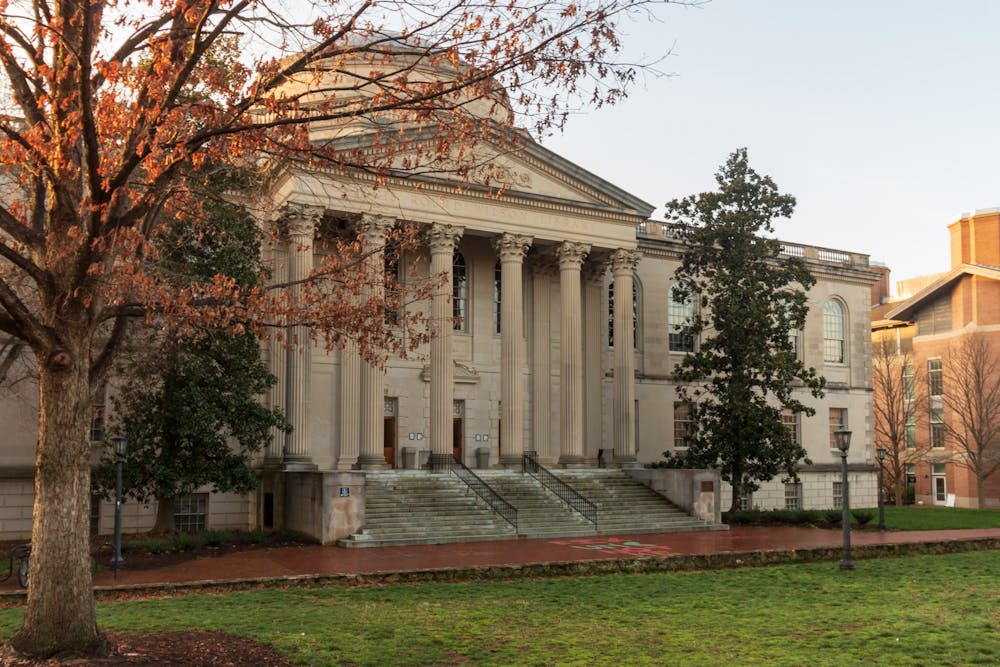On Tuesday and Thursday, University Libraries hosted the New Scholarship on the US South: A Wilson Library Fellows Symposium supported by the Watson-Brown Foundation.
The two-day, hybrid conference focused on emerging trends in the American South and examined cross-disciplinary topics in historical research.
For the event, former Southern studies doctoral fellows were invited to present proposals for academic papers alongside facilitated panels that reflected the fellows’ innovative and thematic approaches to Southern studies.
Vice Provost for University Libraries and University Librarian María R. Estorino welcomed attendees Tuesday evening and said that the fellowships they showcase at the event are investments in the success of emerging scholars.
“They're a manifestation of our dedication, not just to the preservation and discovery of these collections but to the innovative scholarship that they made possible,” she said.
The panels focused on a variety of topics, ranging from environmentalism in the South in the early 20th century to Black and Latino coalitions in Durham.
Ajamu Dillahunt-Holloway, an assistant professor of African American history and public history at N.C. State University, said he thought the conference showed how the South continues to be important. The University, especially Wilson Library, has a tradition of possessing records that go into detail about the region and freedom movements throughout it, he said.
“If you want to study the South, you have to go to Wilson Library,” he said. “This is a special place.”
During his keynote address, Richard McKinley Mizelle, Jr., an associate professor of history at the University of Houston, said there needs to be historical shifts within conversations conducted about the Great Migration, the relocation of more than six million Black Americans from the rural South to the cities of the North, Midwest and West during the 20th century.
“How we think about the Great Migration changes these broader conversations of environmentalism, changes these broader conversations of politics and changes how we think about Black history as well,” he said.
Before the sessions began on Nov. 8, Matt Turi, the special collections manuscripts research and instruction librarian, said this symposium represents the conclusion of a grant provided by the Watson-Brown Foundation which funded the fellowship program for about five years.
“We’ve had a chance, an opportunity, in the last five years to work with you in a deep and a very different way,” he said to the fellows. “It's improved both the scholarship that's come out of your work here, but it's immensely improved our understanding of both what researchers want and the nature of our collections themselves.”
With Wilson Library embarking on a major renovation project next fall, Turi said students need to be good stewards to make sure that these collections survive as far in the future as possible. He added that he would encourage students to reach out to the library early so that scholars can try to meet students' research needs with regards to possibilities during the renovations period.
At the end of the event, Joel R. Williamson Distinguished Professor of Southern Studies and Director of the Center for the Study of the American South Blair LM Kelley gave closing remarks .
“We're already getting back things that are unexpected, things that are rich, things that are powerful interventions in the way that we can see the South,” she said. “So young people have to be at the heart of this work — of this intentional work.”
She also said a richer understanding of "our past " must be built for a new generation.




